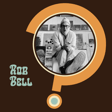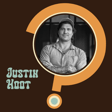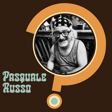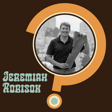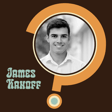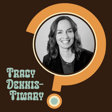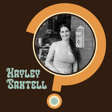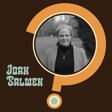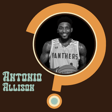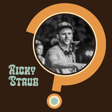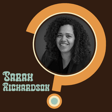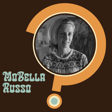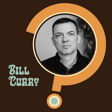Become a Creator today!Start creating today - Share your story with the world!
Start for free
00:00:00
00:00:01

Episode 10 - Bikash Pokharel & Bipin Banjara
Bikash and Bipin are Nepali filmmakers, studying at SIUE in Edwardsville, Illinois. We talked about how our cultural roots have helped to shape our identify and outlook on life, how sharing our own stories have helped us believe in ourselves, and the experience of studying abroad in rural USA.
Recommended
Transcript
Introduction and Episode Focus
00:00:11
Speaker
Hello and welcome back to What's Next. I am Joel Krogman and this is my show. It was really good to have a break last week and just focus on some new guests and some upcoming episodes. And it has felt like a month has gone by. But it's only been a couple weeks. My sense of time with the podcast is all wonky because there's no schedule to it. It's just kind of whenever it happens. So it's great to be back this
Nepali Filmmakers' Journey
00:00:37
Speaker
week.
00:00:37
Speaker
Today, I'm talking with two Nepali filmmakers who are both studying here in southern Illinois at SIUE.
00:00:47
Speaker
I have always been intrigued by people who make big life decisions, like choosing to chase down a dream, by moving to a completely different part of the world where they speak a different language, it's a different culture, it's a different way of viewing the world altogether. It's such an incredibly vulnerable and fish out of water experience. I think part of why it's intriguing to me is because it's part of my
00:01:14
Speaker
family story. My grandparents on my mom's side moved to Canada from Holland after World War II with a baby and a toddler and they did not know the language. It was so different from Holland. That decision has so many ripple effects and like I would not be here if they didn't make that decision.
00:01:36
Speaker
So it's very interesting to me and I think that then for myself I moved down to the United States from Canada which is obviously not even close to the same thing but I can still identify with it. And also whenever I travel I'm always struck by how different the world is from place to place.
Joel's Immigration Story
00:01:54
Speaker
And so I think it's really an exciting disorienting adventure trying to acclimate to a new place while chasing down
00:02:01
Speaker
dream and I wanted to talk with them about all of that so we get into it. It was a it was a really great talk for me. So please enjoy my conversation with Bhikash and Bipin. You got enough coffee and liquids. Okay good good and this is your I guess not your first day but second day of spring break.
00:02:31
Speaker
Obviously it's like when the same weekend, but from tomorrow, like today it's Sunday, right? From tomorrow, it'll be on the spring break. All right. Nice. Cool. Just for a little context, what I'm doing with the podcast is I'm really trying to, or wanting to like explore the decisions people make around creating the life that they want for themselves.
Bipin and Bikash's Background
00:02:56
Speaker
I'm a filmmaker, as are you guys.
00:03:01
Speaker
So there's a, there's like a little bit of similarities that we share, but I'm just super curious to just talk a little bit about where you guys are from, how you ended up here in Southern Illinois in Edwardsville. So my name is Bipin. So I'm from Nepal. So I grew up in the Eastern part of Nepal. So the name of our town is Dharan is a beautiful city. It's also called a blue city of Nepal. Okay. Is it in the mountains or is it not like it's in the thorough plain land of Nepal.
00:03:31
Speaker
Okay. So I grew up there for, I did my high school in Tehran. And after that, I moved to Kathmandu, the capital of Nepal. So I did my undergrad there and I made because. So the interesting thing is like,
00:03:49
Speaker
We met in the first day. I was filling out the application and I need some help. So he was there and calling like, you know, help me with the applications to write, to fill this form. And he helped me. And after that... To get the applications to come to Edwardsville? No, for the undergrad. Oh, okay, okay. So you met on the first day and he was helping you on that same day?
00:04:11
Speaker
Actually, he was sitting on a chair and table like he was feeling the form for the undergrad admission. He didn't have an idea about certain things, so he asked me, how should I feel it? So that was the first day we met on office chair. We didn't know each other, and he asked me questions. And I helped him, and today, after so many years, we are here together. So that's how our journey began.
00:04:38
Speaker
And how, like, we're still here together. Yeah, that's great. Like after that, in the first year, we started making short films and we did it in a group and gradually when, with the time we started doing projects together. And after that, like, did, sorry to interrupt, did you go to, were you going for film school or what was your major in undergraduate? So like our major was a master of media studies.
00:05:06
Speaker
uh, it was in Kathmandu University of Nepal. Okay. And we started making flames and like traveling around, gathering stories. And after that, like we graduated and there was a gap because I went to my, uh, town back home. And after that, we didn't know like we applied for the same university. So like when I came to, uh, capital for my paperwork, so we made, and we like,
00:05:36
Speaker
He started talking about our plans for going out and we just found out like we applied for the same university. So like he came. Which was the SIUE? SIUE, right. Okay. And after
Passion for Filmmaking
00:05:46
Speaker
that, my visa got rejected for the first time. So he came like early semester in the spring, right? I came in the fall. So it was easier for me. So when I came here, like in the first day, he came the centers to pick me up and thus we went
00:06:06
Speaker
around in the bar and just hang out. Made some new friends in the first day. It was interesting. Bipin, what was it like growing up in... You said it was the Blue City? Yeah, it's the Blue City. What's it like growing up in the Blue City in Nepal? It's a town where many people go for the army, doing for the army, meaning for the British army or the Indian army. It's a culture over there. So the influence...
00:06:35
Speaker
is more of like British culture in that town. So why it is called Blue City is like they have the roof, it's all blue. So when you look up from the height, you can see blue, right? So it's called the Blue City. And I grew up in a place, my dad used to work in Radio Nepal, it's a government radio in Nepal. So they have got this whole land, like it was like a big area. So it was forest kind of thing. And I grew up in the army barrack.
00:07:06
Speaker
It was a different experience, like growing in the jungle and playing around the trees, nature, climbing trees, looking at the vaults. So it was fun. So you grew up very connected to nature. Yeah, very connected. And when did filmmaking kind of come into the picture for you? During my high school, I started taking pictures with my phone.
00:07:32
Speaker
more into like taking pictures and I love that thing and after that I went after my school when I went to do my undergrad so I found these people and like I started
00:07:47
Speaker
Like when we did the first flame together and I started like feeling to do that thing. Like after I have to do this thing, like, because I want it. I don't know how it came, but I start loving that thing. You got the spark. Yeah, right. So like after that, I started doing it. I write poems too. So I've been doing that for 13 years now. And so like, if I write poems, I have the story, I have the idea, I can imagine things.
00:08:16
Speaker
So why not create and portray in the visuals, like creating something new. That's cool. So you decide yourself as a director or?
00:08:25
Speaker
Till now I have no plans of doing this, but I love cinematography, directing and I love art direction too and writing.
Impact of Storytelling
00:08:36
Speaker
Okay. So till now I've been making a film independently. So like few, the last week we saw the film, the Song of a Dead. So I wrote the script, we saw that in Kugar.
00:08:48
Speaker
uh, village. So one of the characters is in the next side of the lake and another is in the other side of the lake. Okay. So like this guy's helped us. We walk in the team. Cool. Cool. And, uh, Vikash, how about you? Where did, what part of Nepal did you grow up in? Uh, the city where he grew up, like, and this place where I grew up, it's like,
00:09:12
Speaker
15 to 20 kilometers away. From his. From his. Okay. Yeah. It's a very small town. It's called Inarwa. Soon, sir, it's on the, like it's in the first, uh, province one and the name, like the province, the name of the province, it was recently passed as Kosi. So I was raised in Kosi province and later I like, uh, my whole family moved to Kathmandu, the capital city. And, uh, from there I started, uh,
00:09:40
Speaker
my schooling and did my A-Rables from Trinity College. And we met in undergrad Kathmandu University School of Arts from there, like our journey of flea making started. And eventually we like grew as a flea maker. We like learned different things, work on different projects. And right now we are together on Southern University doing our masters in
00:10:08
Speaker
mass communication. Yeah. So what was the draw to filmmaking for you? Where did that first become something that you saw that you wanted to do? Initially, I began through photography. I was interested in photography, but when I grew up, I felt that history can be told in a number of other ways as well. And when those frames or in a single frame, it can tell
00:10:37
Speaker
powerful stories I mean I thought like a film or a video format could tell a lot more stories so like from there I studied my interest in filmmaking started from there and eventually I decided to join journalism just to you know like extend the horizon of my photography skills but my friends like all of them are interested in filmmaking and from there like I started exploring the
00:11:07
Speaker
idea and concept of video format and film making from there. What was it about story that compelled you to want to do that yourself? I was raised with my grandparents and I used to hear them tell stories.
00:11:24
Speaker
You know, like there is to tell this history in such a beautiful way that, you know, I could feel that history is just like, as if being in their own full state, you know, like I could go back to the time with the experience, that story, and I could feel it through my own eyes or the senses. So this strange,
Undergraduate Experience and Pandemic
00:11:44
Speaker
but very immersive characteristics of film or stories, you know, like,
00:11:51
Speaker
This character, it really interested, it was interesting to me. And from there, my journey, to tell the stories, it began from that age. And eventually it grew further in my undergraduate. So initially, did you just feel compelled that you wanted to be able to tell stories in the same kind of way that your grandparents did? How did you initially make storytelling a part of your life when you became more mindful of it?
00:12:21
Speaker
I think it's human nature to you know, learn and grow looking at others histories and that that part of human nature like it grew in me and to tell the stories, you know to tell the better stories and Someone else feel that emotion like to keep them like it's it's very satisfying kind of thing like it's a human nature to you know, like Share their experience to other so that we all can grow together so that that was a part that
00:12:50
Speaker
led me into storytelling. Immersiveness is a very, very important character while telling a story. I think I would love to make
00:13:05
Speaker
audience or friends or anyone around me immersed in my story to narration or to filmmaking any format available. Yeah. I'm curious because I had a similar experience as a kid in that I was very drawn to people who could speak in a compelling way, who could convey something in a way that could capture a room or capture the audience.
00:13:31
Speaker
But I never felt like I was one of those people who could do that. I always wanted to be, you know, but my older brother could do it. And he still can, he's very good at that. And I always felt not good enough to participate in the storytelling. Like every time I tried, I felt disappointed in my abilities to do it. And it became something I felt like I couldn't participate in.
00:13:54
Speaker
I'm curious, as you kind of discover that this thing of storytelling and poetry and these things that move you, how is your relationship to yourself in terms of how you felt about your ability to participate in it and to contribute and to create these experiences for others that were moving for yourself?
00:14:18
Speaker
Obviously, yeah, there is always certain level of self-doubt. But again, to grow, we need to take the risk. I always feel that, did I say something wrong or did I say something bad? I'm not confident about what I do while I do. But later, when people say that, that was really interesting. I think you did it well. That thing really helps me to take the next step.
00:14:46
Speaker
So yeah, I'm not that confident while doing thing, but I I try to give it my best to like
00:14:53
Speaker
not make any mistakes and not hot other sentiment and like when people say good things about that the thing that I did I think that inspires me to do the next thing. So yeah, I still have this sort of doubt and I still have sort of doubt. Is it like a daily battle or is it something that's just happening in the background and it doesn't you have kind of you have mastery over it more so now? Sometimes it's really intense and sometimes it not that intense like
00:15:23
Speaker
Uh, when, when, when I'm in a like group of people, when I'm alone, it is, it's not that bad, but when I'm in a group of people, I feel that it's really intense. And I think I need to work on that. How about you? So like, uh, before I, when I used to do things, I used to think like, what would people say and what would they talk about my work? Right. And after that, at first, like I started writing to the audience perspective. And after a while I realized that.
00:15:52
Speaker
Why should I write on my own what I think? So I started doing that. How old were you when you had that realization? So it was during my high school. So I was like 18 or 19 years old. Okay. So.
00:16:07
Speaker
After that, I started writing on my own, how I feel. And I didn't care about the people what they would say, right? And I started sharing things. At first, I used to write and make things for my own. After that, like one of my brothers said, like, artists to be shown to people, like, you need to just distribute it, like, what you do, right? People are going to love it. Yeah, yeah. And after that- Your brother said that? Yeah, right. Okay.
00:16:33
Speaker
After that, I got inspired like this too, I think. And I started making a poetry video and just posting it and sharing it. Like on YouTube? Yeah, right. YouTube. And it built my confidence that people are loving it, like giving like good comments, like you're good at it. And after that,
00:16:50
Speaker
I started writing and like making films and like it wasn't an experimental film for the first time, but like it's so how your brain works, how your imagination works, what are your mistakes and what you can do more. So like now what I feel like I feel more confident when I write things and I feel happy, like I'm more calm, conscious when I write.
00:17:19
Speaker
Yeah, I find that I had an experience when I was in high school. I had a lot of insecurities and self-doubt and just didn't know who I was at all. But I like to write as well. And I remember in high school, there was just a paper assignment that we had to do.
00:17:38
Speaker
I never really thought of myself as a very good writer or anything like that, but I wrote this paper about just sort of critiquing. I grew up in like a Christian faith circle, you know? And so I wrote this paper that sort of was critiquing it.
00:17:56
Speaker
saying these things like calling out some of these hypocrisies and some of these things that i saw as a angsty uh 14 year old 15 year old and my teacher really liked it she thought this is really a really great paper and she wanted to read it in front of the class just that feeling of being exposed of like what i really think
00:18:15
Speaker
I remember just sitting, my legs are shaking and I'm just sitting at the desk looking down. I must've been beat red while she's reading it. But just that feeling of having somebody recognize that what you're doing has value, that your voice or your point of view has value, was also so incredibly uplifting for me and encouraging for me and made me feel like I have something to offer in some way and it's worth pursuing it a little bit more.
00:18:44
Speaker
Okay, so you are in undergrad. You're both in undergrad for the same program, is that right? Yeah, sure. Okay. And what was that again? It was a birthday in mass communication from Carmen de Universitie. Okay. And so then you do four years there and you're working on independent films or your own projects, kind of together and stuff as you go.
Future Aspirations in Filmmaking
00:19:12
Speaker
Yeah, we began our Badlass degree in 2016, August 2016. And the first year or first semester, we came to know each other. And we were five or six of us who were truly interested in filmmaking. But at that time, we didn't know that we were interested in filmmaking. And eventually, first semester, it was completed. And we got more friendly. And our interests got more aligned.
00:19:39
Speaker
And at the beginning of second semester, we worked together on the first short film. And one of our friends, he initiated it and we worked. And from there, we really felt that this is my thing.
00:19:55
Speaker
The bug. The bug, yeah. Yeah, yeah. This is my thing. And all of us were so interested in that, like, swing our vision. The next time, anyone from the team, if they have some reason, if they have some script, all of us work together. So from there, we worked on different projects throughout our undergrad degree. And in 2019,
00:20:21
Speaker
While we were on our last semester or something like that, like the coronavirus, the pandemic hit and we couldn't be together. So after that, the group was like, we were involved in our own thing, but not that involved.
00:20:38
Speaker
Like we were in undergrad, we used to meet every day, work on different projects, talk together, that kind of stuff. And then undergrad was also about to get completed. And after that, our meeting, it was slowly reduced. And individually, we were involved in our own projects.
00:21:03
Speaker
So after coronavirus, that's how I decided to come in the US to pursue my master's. He decided he was in Dharan in his own home. He decided to come US, but I didn't know about that well in our separate ways. Oh, no way. So this was kind of coincidental that you both came here at the same time. It is coincidental. When did you find out that it was happening? Actually, I was feeling the form for my interview visa.
00:21:33
Speaker
And at that time, even he was like preparing, he did apply for some college and he was waiting for, he was also waiting to get an visa appointment, I think, the interview for visa appointment. And at that time we just contacted each other and we met.
00:21:52
Speaker
We look at our I-20 and it's the same university. That's crazy. That's crazy. What was that feeling like the moment of realizing it? What did you guys say? How could this be? How did we apply it for the same university and didn't know? I had that thought at that time.
00:22:11
Speaker
Yeah, that's crazy. Yeah, it is. What are the odds of that? There's thousands of schools. Thousands of schools, exactly. And we both got approved by the same university and decided to be on the same university. Amazing. Yeah. Okay, so what is it that you're working towards? What is it that you ultimately want to make films? I imagine that's kind of the end goal, but what is the
00:22:38
Speaker
more specific desire that you want to accomplish. So after my graduation, I'm thinking about like, just for a few years, I'm going to take the experience from the field so that we don't get in Nepal. So like, but in case of a story, we have many stories back in Nepal. So for that, I'm going back to Nepal after like a few years after the experience. Okay.
00:23:02
Speaker
and do a film, so back in Nepal, make documentary sheets of films. Okay. Do you start like a production company of some kind? Yeah, right. That's awesome. How about you, Vikash? How about my graduation, after graduation?
00:23:16
Speaker
What do you ultimately want to do with your passion of filmmaking? Obviously, I would love to invest my time working in scripts and writing stories and making a film. So is writing what you're most interested in? I'm interested in writing and directing. That would be my main focus, but more than that, I think it's to
00:23:41
Speaker
Building a story, a good story, I think that would be my prime focus because there are lots of stories over here. Every day, different movies are made on different stories, but really few of them are remembered for a very long time. Yeah.
00:23:57
Speaker
I think building a very good story would be my prime focus. And for that, after my graduation, it's all about the opportunity. If I get an opportunity to stay here and work on the thing that I want, probably I might stay here. But if I get the good story in Nepal, I wouldn't lose that opportunity. So it's all about the story. Okay. I visited Nepal in Kathmandu in 2016.
00:24:27
Speaker
I was working on a project that was a story of a radio program that was designed to get information out to the rural communities. And there's definitely some traditional ideas of what life should look like as you grow up. I'm curious about what are the expectations on young men as they grow up. For me, I'd say that my parents were
00:24:51
Speaker
liberal parents, liberal liberal. And I got the chance to do I got like I was privileged to do what I wanted. But looking at the general picture of Nepal, like people are conservative. I think like most of the people are conservative because they don't like prefer art as in, you know, like the passion to follow in life. Yeah. And they want they want to follow this school curriculum and which is very theoretical based. There is no practical elements to it.
00:25:22
Speaker
It's just like CP's kind of environment. They produce CIP kind of thing. They don't provide the opportunity for children to experiment with their interests, their passion. They just say that you need to
00:25:41
Speaker
like on this degree and you need to go on the banking sector or this kind of sector, they don't allow them to do what
Cultural Identity and Religious Influences
00:25:47
Speaker
they want. Just for stability, just to get a good job, just to get money. Yeah, true, true. And that kind of destroys art. And I believe for art to thrive, people should keep open environment. And for me, I got to live in a very open environment and
00:26:09
Speaker
For that, I'm really thankful for my parents, but Nepal needs to, I think the parents in Nepal, they need to think outside the box and let their children grow more in an open environment rather than just in textbook. They need to ask their children what they want to be.
00:26:34
Speaker
rather than forcing them what, as a pattern, their vision is for the children. Yeah, yeah. And do you feel a certain kind of responsibility in helping shape that? With your films, do you hope that they could open people's minds and hearts to that kind of a future? Like I said, my interest in film making grew from my grandfather narrating me stories.
00:27:00
Speaker
my grandfather's history changed me in certain aspects. So I believe it's my responsibility if I'm in a responsible place to show people that something is right or something is wrong. So I don't think that my film, if I get to make one,
00:27:18
Speaker
uh would just focus on uh the mass audience and telling the stories but I would also focus on you know like different aspects where people can learn you know like there are different movies where people get to learn different things about life and there are some films which are just for entertainment so I think uh I will
00:27:37
Speaker
I would love to see people learn certain aspects or get certain things from the movie that I make if I make one.
00:27:49
Speaker
Yeah. How about you, Bipin? What are your hopes for the outcome of your work? At first, my father used to work in a radio station, government radio station, and then he didn't see a fuser when I get involved in that subject, right?
00:28:08
Speaker
And when I asked them, like, I want to join the media, I studied. They were like, no, don't do that. Like, don't be real and end this thing. They want to see me in the other place, right? And I just said, if I do, I do this. If I don't do, I don't study. And like, I forced them. So I studied. And later on, they realized that it was his passion. And they always like, nowadays, when I used to talk with them, like they say, you make a right choice.
00:28:40
Speaker
So as that thing made me who I am today. So like even in my community and the people, what I do, people love that thing. People are more interested to our filmmaking. Even like this thing is taught in Nepal.
00:28:57
Speaker
Like you can go, you can like tell stories. And like in future when I write stories or like I used to do a slam poetry back in Nepal. So it's kind of sharing a message to other community and like writing about the issues and distributing message, right? Poetry. So like I see.
00:29:21
Speaker
like coming up with the stories that can like uplift the society or like just make any change a little a little change. Yeah. I want to do that too. Yeah. Yeah. When I was in Nepal, I've
00:29:36
Speaker
felt like the youth were definitely excited about the future and excited about the mark that they can make on society. And especially in Kathmandu, there's artists everywhere, people that are engaged socially, especially with the people that we were hanging out with with this radio program and the work that they do. But it was really exciting to be around that energy.
00:30:03
Speaker
I think Kathmandu is one of the city filled with art and culture. Yeah, so much. Yeah. When you walk through any alley of Kathmandu, the ancient places, on the temples, you get to see these sculptures, so beautiful sculptures carved on the wood, paintings. It's very traditional, but it's really, very artsy.
00:30:28
Speaker
Kathmandu is a place where art is really important because it's a very old city and when we see that art it's not just contemporary art it's the art like developed through centuries you know like many years and we get to learn a lot of things looking at those arts so I think Kathmandu is really really good in art wise and cultural wise there are lots of
00:30:57
Speaker
Good foods, people, temples, everything you say it's so artsy. Yeah, so much good food. I ate, we had the, there's like the traditional liquor and you drink it out of those like really shallow clay. Yeah, so good. And the deep fried sheep's lung.
00:31:20
Speaker
Oh, yeah, that's good too. I'm curious, because Nepal is very religious, you know, temples everywhere, it's much more integrated into society than here. Do you draw on any kind of religious inspiration or look on your life and the impact you want your life to make and what you think you're here to do? Nepali is like a majority of Nepalese, like 80 to 90% were Hindu.
00:31:48
Speaker
Okay, yeah, right. Yeah, we are in the end. More than that, how we grow, like looking at these temples and stupas and all these things, it shapes our thinking. For example, when you go and see Paspatinath, someone is worshipping the god and on the bank of the river, a dead body is being burned.
00:32:11
Speaker
There is lots of spirituality going on, not just physical presence, but some spiritual energy as well. So that shapes our thinking in a lot of ways. And when you go at the Himalayas, there is Buddhism. There is this whole another religion and people follow it so peacefully and it's very vibrant and rich and with its own culture and tradition. So in Nepal,
00:32:41
Speaker
We get the experience of all these religions in a very peaceful way. There is no religious conflict or something like that going on in Nepal.
Documentary Experience with Transgender Woman
00:32:50
Speaker
And for me, going in that situation, it gave me a different perspective of how I see life. Which is what? What is that perspective? A person is coming to Paspatinath to worship for God. He just got a new child.
00:33:08
Speaker
He comes to Pasputinath and worships God, thanking him for all the blessings that he received. And at the bank of the same temple, a dead person is being burned and there are families who are crying and shouting because someone is not with them now.
00:33:27
Speaker
i don't know how to express it in words but it's very surreal kind of experience and like it's very different people can interpret in like what is life you know like when you see that life and that it just you know it's very connected but
00:33:45
Speaker
It's a powerful thing. I don't know how to describe it, but that's a very powerful movement. And see, I had similar kind of experience in autofill, like we're traveling as well. Like we travel, like, I don't know why, like temples are mostly on the hilltop of the hills. What does it signify? Why are temples on the top of the hills? Like it suggests that, you know, like we have to struggle
00:34:10
Speaker
You know, we have to walk all those steps and like, reach on the top and like, attend peace, you know, like, I don't know, like there is so much of thing that, that can be described looking at the, looking at different elements of, you know, lifestyle, Nepalese lifestyle. So it's kind of like anything where there's good, there's good things about.
00:34:33
Speaker
these traditions and these beliefs. But being around that stuff, is it something that you identify with and it strengthens your beliefs or it sort of opens you up to the magic of the mystery? Or do you feel that's like an old way of doing things and you're more interested in the moving forward?
00:34:54
Speaker
I want to experience different things in life. So for me, when I was born, it is giving me different elements, different new experience. So I'm still exploring. I like this experience, exploring new things. And I do believe there are still lots of things to explore, but I'm liking it. I'm just taking it the way it is. I don't want to comment on it. I just want to learn from it and grow looking at it.
00:35:22
Speaker
Yeah. Okay. And how about you? How does the blend of culture and religion shape your outlook? So like coming back from Nepal, like I've rooted to my culture and everything. Like that's how I grew up. And when I came here and like after like few months back, my grandmother died and like we have our culture and ritual. We have to be in a pure state, like without touching anybody, like
00:35:52
Speaker
only we cannot eat salt. We have the fruits and like rice. So it was difficult for me over here. So, but I did it. Oh, you were doing it while living here. Yeah, I did it while living here, like in the apartment. So he saved my hair. He helped me to save my hair. We keep a little bit of hair in our forehead. Was your hair long before? Yes, I did. And like it's difficult.
00:36:21
Speaker
to follow the same culture over here. But my heart doesn't want to like, I want to follow that culture, right? So I did it in my apartment, like worshipping, remembering my grandmother and all this thing. It was hard, but like, but at least I did like, remember her in a certain way. And like traveling, while traveling from place to place, like when I was Taran and I went to Kathmandu and I went to other part of Nepal. And when I came here, like,
00:36:50
Speaker
It's just you learn many things with time and the location. So you have like different perspective how you can deal with things and like including your culture and everything.
00:37:02
Speaker
And as you think about the films you want to make, how do you see your work as a filmmaker impacting society and the people you care about? Talking about flames and like this production, like telling stories back in Nepal, like we have this culture of reciting our stories, sitting in a place by a person and like people around, they listen to the stories, right?
00:37:27
Speaker
and it's a different kind of culture and when you come to visuals and like a story it's different like we don't have like that much advancement in our country we don't have literacy of like flea mat and like video thing so it is so diverse that there are many stories and like every culture have scones and like prose right so like if you if we work to bring the diversity
00:37:56
Speaker
what to say, like in the right way so we can feel and experience the same culture by people all around the world. So it will be really nice. Back in 2019, I got the opportunity to be part of this documentary Blues of Pink. So it was on the like, what was it called again?
00:38:19
Speaker
It was called Blues of Pink. Blues of Pink. Blues of Pink. And we were like me, along with my team, the director, Grismagiri, we were on the southern part of Nepal. And there we saw the story of a transgender woman and the culture, the people and
00:38:40
Speaker
their struggles, you know, like how people struggle with the society, with the established norms, with established tradition. I got the opportunity to shoot that on a video format, on a documentary. And we got the opportunity to show it on a big screen. And her struggle, her sufferings,
00:39:02
Speaker
were really different yet very powerful. Powerful in a way that how a woman, how a transgender is suffering, but her willpower to change something, to do something, to provide better future for an adopted child.
00:39:20
Speaker
She did adopt a child. She couldn't have a child, so she did adopt a child. She provided opportunity to a child because she did wanted it. She wanted to help society. She wanted to bring some change. We showed that story on a big screen and people told me that it was a really powerful story. So from there, I felt that
00:39:47
Speaker
I think I'm on the right field. I think people need to hear more stories like this. That kind of was the biggest point in my life because I knew this is the right format to show people that something bad is happening, something needs to be changed, something we can grow together by learning something, and Vito is the right format to show all those things.
Cultural Experiences in Nepal and US
00:40:16
Speaker
That's really cool. Anytime I've had that same kind of experience, it is a very intoxicating experience to have played a role in telling a story that moved somebody. Yeah, true. So how many years do you guys have left in your current program? I'm on my third semester, so I have around seven or eight months probably. And you too, Vivi? So this is my second semester. Okay.
00:40:43
Speaker
So I still have one more year to go. Okay. Did you guys get hit by where you lived the earthquake? What year was that again?
00:40:55
Speaker
2015. I was there in 2016 and so much was still not rebuilt yet. What was that like? The day after we were all on the open ground, no one was living on the building thinking that after Sakuri strike again, and buildings were collapsed, all this tempo, there's this big
00:41:23
Speaker
uh, building called Dharara, uh, and it was, you know, like collapsed. Yeah. And, uh, different people were trapped and killed and the connection, you know, like network cell phones were down and this is very, I don't know, like it was really sad time. Yeah. Yeah. Yeah. Yeah. I don't know.
00:41:48
Speaker
It was really sad time. I saw a lot of pictures on the internet and different dead bodies and different religious sites being blown away, like collapsed and lots of property people were destroyed. It was a very sad time. The image is coming from the Turkey.
00:42:18
Speaker
earthquake and just it's so hard to imagine that kind of devastation and
00:42:24
Speaker
I can imagine that there's like a trauma that goes with having lived through that where you could feel like almost never safe again. Like this could happen anytime. Was there any of that that you dealt with in the aftermath? Luckily, I didn't hear any bad news of someone that I knew. Okay. So maybe I cannot...
00:42:51
Speaker
like explain how other people felt when they lost, when they lost someone. The aftershock, the earthquake was really strong and the experience we had was really devastating. But since I didn't have severe causality or people whom I knew, like they were, they did, they were not cured. I can't say that I still feel
00:43:17
Speaker
I'm safe in a way. Yeah. Yeah. Okay. There's like distance from it. Yeah. I have a distance from it. Yeah. How about you? So the AP center was very far. So it was near Kathmandu. And before that I never visited Kathmandu. I've seen the pictures and after that I saw what I saw.
00:43:42
Speaker
the Kathmandu was collapsed, right? Like the old monuments and everything was people living outside. But back in the Andu like we stayed outside for like a week. Just like slept in tents kind of thing. Right. So I didn't feel how like people of Kathmandu and the most affected area feel, but what I saw in social medias and television and the news, like it was really sad. Yeah. Yeah.
00:44:12
Speaker
Yeah, I guess I can kind of relate to that feeling where natural disasters happen in this country. They happen as well with, you know, hurricanes and torrential floods out in California and fires and tornadoes and all that kind of stuff. But it's never been like in my backyard. So I guess there's like that feeling that you kind of have that separation from it, sense of safety or whatever.
00:44:37
Speaker
Yeah, it's great to get to know you guys. I'm excited to see what comes of both of your work. Thank you. Thank you so much. Thank you for having us. Life is a process. Every step is a new step. Let's see how it turns out, but hard work and struggle, that's the part of life. It's an ongoing process. Let's see how it turns out. Thank you so much for letting us hear our stories.
00:45:06
Speaker
Thank you so much. Yeah, for sure. I think that's the thing that I really like about being around a university is the hope of youthful passion and that the world is wide open rather than something that's closing in on you. Everything is new. Whatever we see is new, even the people around us, the architecture, the culture. It's a different kind of adventure and what I've learned is
00:45:34
Speaker
When you take problems as an adventure to solve it, it's really nice and you want to do that too. It is our first podcast. Thank you so much for getting to know each other. It's a different kind of experience. It just changed how I think from today to right.
00:45:56
Speaker
That's cool. Yeah, that's cool. It's great to hear that. Last summer, we had just moved here. We were here for a week and then I traveled to India to film a project. We were in Delhi, but we were traveling around in some of the rural farm areas.
00:46:15
Speaker
And we're just so welcomed in and taken care of by these families way over and above what would be considered normal here. Somebody's aunt spent a day and a half preparing food for us and they just provided it for us. The only payment was that we enjoy it. And then I come back here.
00:46:40
Speaker
And I'm thinking about how because of this university, there's so many international students here. And just how the feeling of coming from a community in a culture like that to coming here, where it's like, I'm about my comfort. I don't want too much to be asked of me. And so that mentality that you're talking about, this is an adventure, is so especially important because it's such a culture shock.
Reflection and Gratitude
00:47:10
Speaker
So like we have this saying in Nepali like, so like guests are special. So because they come here to know you, know your culture, right? So like it's the main thing we do like guests are special. So we treat them especially.
00:47:27
Speaker
So it's in the blood and our reason.
00:47:42
Speaker
for those few days where it's like you become family. It's like this incredibly intimate thing where someone's welcoming you into their home, they're making you food, they're telling you all these things about themselves, and you're capturing it all. And they're making you the priority for three days. In my opinion, the best experience of filmmaking is when that happens. I think the major reason for that is the culture and tradition that we are brought up.
00:48:10
Speaker
We are brought up in a very collective way, the zoon family kind of thing. All this family spreading all the way, but during festival and certain traditions, we come together, eat good food, share our memories again, and get back to our normal life after our festival is done.
00:48:29
Speaker
And even after that, the connection, the talking and communication, it's not over. We communicate frequently and that's the part of our lifestyle, I guess. And without that, that's our identity, to be honest. Without that,
00:48:46
Speaker
we would not be what we are. So what we have experienced, what are ingrained in our blood, what are ingrained in our life, we behave in the way, in the same way that we were raised.
00:49:04
Speaker
And we do expect the same kind of thing while traveling, but the situation is completely different. But again, it's all part of the learning. It's part of the process. We have to learn different experiences. We can't be in our comfort zone every time.
00:49:20
Speaker
So as life, it's an adventure. We just go with the flow. Yeah. Yeah. Okay. So going with the flow is great, but do you feel, do you feel pressure to be somebody special, to be someone who makes a specific difference or is it much more like you're just participating in a flow and whatever role you happen to play is great.
00:49:41
Speaker
I would love to just be on my own and work on my things, but that won't be enough in today's world. There is no desire to be great or something like that, but I want to be the better person.
00:49:57
Speaker
of myself while doing certain things. So, does that count for being great or something like that? I don't know. I think the indicator is like the motivation being how people view you versus how you view yourself. Yeah, exactly. Yeah, yeah. You know, like as, you know, like the actor, you know, like Matthew McConaughey says, you know, like, I want to be, I don't want to be the same person I am today after 10 years, you know, and does that account for being, you know, like the great person of myself?
00:50:28
Speaker
I don't know how does it come, but I don't want to evolve. I don't want to change and I don't want to do better things compared to what I'm doing today. Yeah. I think there's a thing that for me, I am a self-admitted approval junkie. I need approval from other people. That's just when someone else gives me the stamp of approval, then I know that I matter.
00:50:52
Speaker
And the journey for me through therapy and through life, that's really what this podcast is. It's like a way to practice getting my own sense of value from myself rather than from what people think around me. As an adult, that's the thing that has gotten in the way the most of me being happy.
00:51:11
Speaker
The main thing is at the end of the day, you just need to be happy for what you did, like what are you doing. So that's the recipe for me, like just do what you love and just take rest at the end of the day and take a good nap and sleep. That's great. Take a good nap. I feel like we all need a nap after this. Just don't stress out like what I'm going to do tomorrow. Just plan ahead of time and just
00:51:40
Speaker
Take rest for a while, take a deep breath, and start your day tomorrow. Yeah, yeah. Thank you guys for doing this. Thank you so much. I have no idea how do I express things, right? But it's a great opportunity for me to ask, to know about YouTube and know about this culture in a more better way, and talking about flames and all the culture. It's different for me. It's a great thing. I enjoy it.
00:52:09
Speaker
Oh, good. I'm glad. I'm glad. Yeah, me too. I love learning. Understanding how other people in other cultures think and feel about themselves in the world and all that helps me get more perspective even on myself and how I relate to myself and the struggles that I have and what I'm trying to overcome in my desire to live a life that I actually want. It's really nice coming in. It was a good day. Yeah, I'm so glad. I'm so glad.
00:52:39
Speaker
Thank you for having us. I got really different memories, talking of it. I got to recollect different memories from my past and those are the very beautiful memories and sharing this experience is a very new experience because this is our first podcast and thank you for having us.
00:53:02
Speaker
I hope we'll keep on sharing our stories and coming days as well. Yeah, for sure. I really look forward to seeing the work you guys create in your lives. It's going to be good. Cool. All right. Thanks, guys. Thank you.
00:53:29
Speaker
So that was my chat with Bipin and Bikash. We met them and their group of Nepali students. My kids love swimming and we met them at the pool swimming in the lane next to us and immediately hit it off. And also I'm just really grateful that they're open to us and to what's going on in our lives and then just sharing a little bit of it with us.
00:53:59
Speaker
So yeah, as I said at the top, I have some really exciting episodes coming up. And I'm just, I actually can't believe every time someone's willing to talk with me on this podcast, I'm beyond grateful. And I'm incredibly grateful that you all are listening. So thank you. That's episode 10. I'll see you next week.
